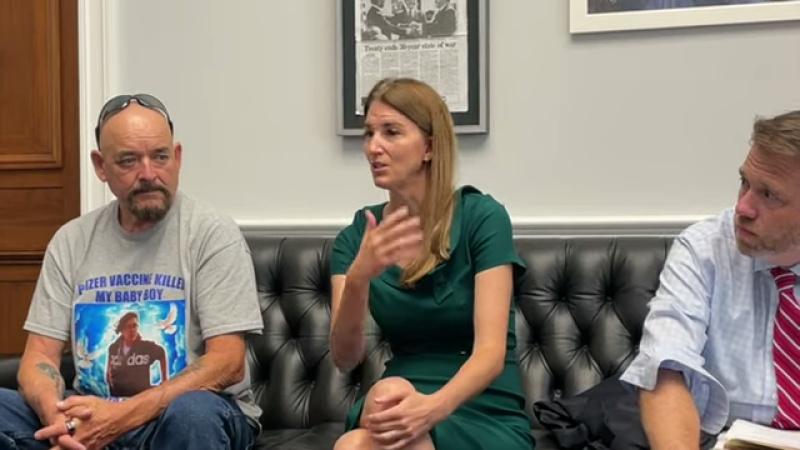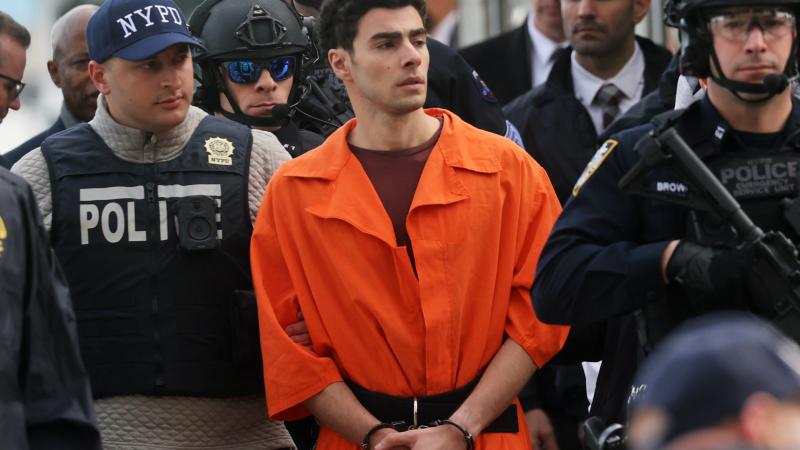Jordan optimistic Trump can bring peace to Gaza, but emphasizes need for Arab input
Jordan is a close security partner with the U.S. and has contributed to containing terrorist groups, namely the Islamic State, in the region.
President Donald Trump’s meeting with King Abdullah II of Jordan on Tuesday marked his latest effort to secure a shakeup in the Israel-Palestine conflict as he courts neighboring nations to accept Gazan refugees and invest in rebuilding the region.
After Trump envoy Steve Witkoff clinched a ceasefire agreement between Israel and Hamas heading into the new administration, the Republican commander-in-chief has proposed relocating Gazans to neighboring Egypt and Jordan as well as U.S. occupation of the strip. The plan has some Arab countries balking, with some suspecting the plan leads to a likely Israeli annexation of the region.
The meeting comes as conflict in the strip threatens to resume over Hamas’s refusal to hand over additional hostages, alleging that Israel violated the terms of the ceasefire agreement.
The Jordanian king sees a chance for peace
Nonetheless, the king offered kind words and optimism during his meeting with the president, saying "I truly believe, with all the challenges that we have in the Middle East, that I finally see somebody that can take us across the finish line to bring stability, peace, and prosperity to all of us in the region."
Jordan is a close security partner with the U.S. and has contributed to containing terrorist groups, namely the Islamic State, in the region.
He further insisted he believed Arab nations had a “collective responsibility” to work with Trump on achieving a lasting settlement. As a gesture of good faith, the king confirmed Jordan would immediately accept 2,000 Palestinian children with pressing medical conditions. Trump indicated he had not been aware the king would make such a move.
But the show of good faith did not necessarily lead to an about-face for the kingdom’s official stance displacing the local inhabitants of Gaza. "His Majesty King Abdullah II stresses the need to put a stop to settlement expansion, expressing rejection of any attempts to annex land and displace the Palestinians," the Jordanian government posted last week in response to the initial announcement.
The king’s meeting with Trump came as the president has suggested he may cease providing military aid to Amman and Cairo should they refuse to accept his proposal. No such announcement has occurred as of press time.
Egypt likely a tougher sell
The Jordanians have traditionally been more willing to cooperate than some of Israel’s other neighbors. The Egyptian government of Abdel Fattah el-Sisi, widely regarded as a dictatorship, has vociferously objected to accepting refugees throughout the conflict and even deployed troops to the border.
Nonetheless, Cairo maintains amicable relations with Washington and Secretary of State Marco Rubio met with Egyptian Foreign Minister Badr Abdelatty on Monday. The pair discussed the two nations’ commitments to “promoting regional peace, security, and stability” in the region, a State Department spokeswoman confirmed.
Egypt’s acceptance of an American presence in Gaza seems to be the lynchpin for the Jordanians, making those negotiations critical.
"We will be in Saudi Arabia to discuss how we can work with the president and with the United States. So, I think let's wait until the Egyptians can come and present to the president, and not get ahead of ourselves,” the king told reporters, referencing an upcoming meeting of Arab leaders.
Contingent on a ceasefire
Trump has suggested that simply returning to the status quo ante bellum is not viable and that a new plan is necessary for the region to secure lasting peace. He further insisted that the Palestinians would not enjoy a right of return to Gaza after their displacement and would prefer to remain in their new locations due to superior conditions.
“Gaza is a hellhole right now … The only reason the Palestinians want to go back to Gaza is because they have no alternative … They instead can occupy all of a beautiful area with homes and safety and they can live out their lives in peace and harmony,” Trump said earlier this month.
"Let hell break out"
Regardless of whether Jordan and Egypt play along with Trump’s efforts, however, any plan is contingent on the ceasefire between Israel and Hamas holding firm. Hamas has already withheld the delivery of hostages, alleging that Israel violated the terms of the agreement. In turn, Israel accused Hamas of the same. Trump has warned Hamas to return the hostages by Saturday.
“As far as I’m concerned if all of the hostages aren’t returned by Saturday at 12 o’clock — I think it’s an appropriate time — I would say, cancel it and all bets are off and let hell break out,” he said on Monday. When pressed on what he intended for Hamas should they not comply, he curtly retorted “they’ll find out.”
Israeli Prime Minister Benjamin Netanyahu on Tuesday echoed that sentiment, confirming the ceasefire would end if Hamas did not return the hostages by noon on Saturday.












